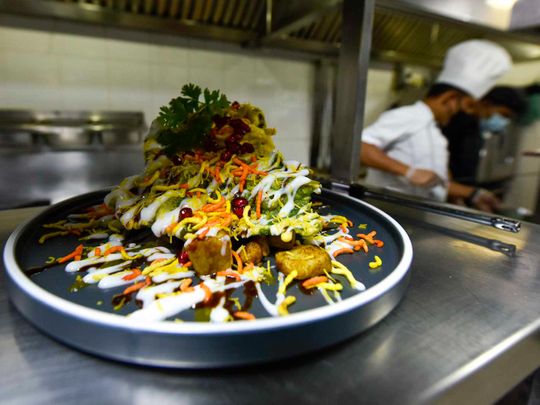
“They created a new model that relied on a product from restaurants that was never designed for delivery,” he says. The company has raised a total of $24 million in funding and just opened its fifth cloud kitchen in Dubai this week. “The fact that 80 per cent of customers said they wanted food delivery platforms because of convenience and variety, this changed behaviour and it meant satellite kitchens suddenly had a very big use case,” says Sandeep Ganediwalla, managing partner at RedSeer Consulting.Īs more people ordered online, restaurants struggled to handle large delivery orders inhouse and that opened up the opportunity for cloud kitchens according to Peter Schatzberg, founder of Sweetheart Kitchen which is backed by Germany's Delivery Hero. Printed menus, ordering by phone and paying cash on delivery were soon replaced by a single app that offered variety, live tracking of food and the ability to pay online which simplified the process. When the third-party food delivery startups like Deliveroo and Talabat first appeared, they aggregated demand for online food delivery and did so on a single screen. The UAE and Saudi Arabia alone account for close to $2 billion of that.


The Middle East and North Africa (Mena) is one of the most lucrative parts of the world for online food delivery, data from Statista shows that the market was worth $3 billion last year. Within the cloud kitchen space, several business models have also emerged and speaking to the founders of each reveals one thing – each is convinced and adamant their model is the right one.īut before we explore the different business models, it is important to understand what has driven such a fast-paced rise in cloud kitchens in the region.

According to data from RedSeer Consulting, cloud kitchen revenues in the UAE and Saudi Arabia jumped 160 per cent from 2018 to 2019 and is currently worth more than $65 million. With technology this evolved, initially by incorporating an online booking system and then with the rise of online food delivery, these kitchens became the spot where restaurants and virtual brands serviced the delivery-only market.Īnd so commercial kitchens went from being a space to cook, to becoming a tech-infused “cloud” operation and over the past couple of years, the UAE has emerged as a global hotspot for startups in this sector. While industrial and commercial kitchens have always existed, they have traditionally operated as a real estate play – leasing out their facilities to caterers, cooking classes and food manufacturers, usually small brands creating shelf-ready products. Prior to Kalanick’s foray into the sector, cloud kitchens were already making their mark in India and Singapore. With one of the world’s most successful entrepreneurs at the helm and plenty of capital, then surely this new startup was going to be the next unicorn.Īlso known as dark, satellite, virtual and ghost kitchens, the cloud kitchen space has opened up a world of virtual restaurants, menus and brands. When Uber co-founder Travis Kalanick sold most of his shares in the mobility giant to launch CloudKitchens, securing a $400 million cheque along the way from PIF, Saudi Arabia’s sovereign wealth fund, it ignited a wave of interest among the world’s tech community.


 0 kommentar(er)
0 kommentar(er)
